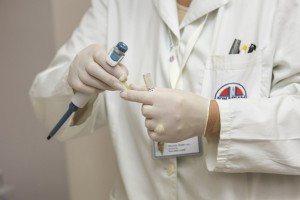The process of stem cell cord blood banking is naturally precise and very well defined. To begin with, the nature of the sample is itself very fragile. If not stored properly, cord blood will deteriorate rapidly and will loose its value in about 24 hours. Therefore, it should not come as a surprise to know that all cord blood banks have evolved very elaborate and tested procedures to handle precious cord blood and its documentation.
The process of cord blood banking actually starts much earlier than the actual process of the birth. The parents usually get to know of the benefits of the umbilical cord blood from a counselor and once they are convinced that a cord blood bank is a good idea and a sound investment for their family’s future, they would decide to investigate further.
Costs of course will be figured out and based on the means the family is able to spare, a suitable plan would be selected. There are a number of other concerns while selecting a cord blood bank. In brief, they relate to convincing yourself that you are getting good value for your hard-earned money. You need to make sure that the bank you select to bank your baby’s cord blood follows correct procedures, is financially viable and has the right infrastructure. You must also let your selected bank know of your decision well in time so that they can make required arrangements to collect the umbilical cord blood.
Once the umbilical cord blood reaches the cord blood bank, a large number of tests are conducted to determine if it is free from any infections and if it can be banked safely and reliably. Obviously, there will be occasions where the cord blood has to be discarded. Typically, if that happens, the cord blood bank refunds your entire deposit (minus the courier charges). Even in such a case, you get the benefit of a detailed check up of the blood sample and adequate early warning that there is something that needs to be corrected.
If all tests come out clean, the blood is then sent for separation where the non-essential elements are removed. This is important because not only does it simplify the cord blood storage, but it also allows people with a near match (not a perfect one) to accept the transplant.
The stem cells are then stored in absolutely sterile conditions, in liquid nitrogen at minus 200 degrees Celsius. Let us hope you never require stem cell cord blood, but is reassuring to know they are there. After all that is what an insurance policy is for.
- cord blood donation in Brook Park MN
- public cord blood donation banks in Salfordville PA
- umbilical cord blood stem cell in Morton Grove IL
- cord blood banking in Bancroft WV
- types of cord blood banks in Portola Valley CA
- cord blood preservation in Paige TX
- cord blood embryonic stem cells in Conway NH
- cord blood transplant in Wausau WI
- cord blood banking prices in Aberdeen Proving Ground MD
- cord blood center in Curllsville PA
- cord blood storage cost in Jonesville TX
- cord blood gas in Paradise MT
- cord blood stem cells in Egnar CO
- process of cord blood banking in Nekoma KS
- cord blood solutions in Paulden AZ
- cord blood storage companies in Forksville PA
- cord blood banking companies in Belchertown MA
- cord blood umbilical blood in Sandia Park NM
- cord blood donation hospitals in North Hollywood CA
- umbilical cord blood stem cells in Clovis NM
- cord blood registry in Rogersville TN
- umbilical stem cell storage in Pulaski PA
- private cord blood banking in Owensville IN
- cord blood storage in Gunlock UT
- cost of cord blood banking in Happy Camp CA
- private cord blood banks in Pinola MS
- umbilical cord blood banking in Woods Cross Roads VA
- public cord blood banking in Aurora ME
